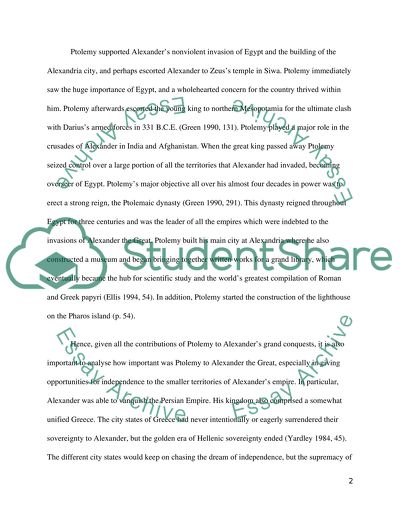Cite this document
(The Friendship that Shaped One of the Worlds Grandest Essay, n.d.)
The Friendship that Shaped One of the Worlds Grandest Essay. https://studentshare.org/history/1590453-what-was-the-role-of-ptolemy-i-under-alexander-the-great-how-important-was-ptolemy-to-alexander
The Friendship that Shaped One of the Worlds Grandest Essay. https://studentshare.org/history/1590453-what-was-the-role-of-ptolemy-i-under-alexander-the-great-how-important-was-ptolemy-to-alexander
(The Friendship That Shaped One of the Worlds Grandest Essay)
The Friendship That Shaped One of the Worlds Grandest Essay. https://studentshare.org/history/1590453-what-was-the-role-of-ptolemy-i-under-alexander-the-great-how-important-was-ptolemy-to-alexander.
The Friendship That Shaped One of the Worlds Grandest Essay. https://studentshare.org/history/1590453-what-was-the-role-of-ptolemy-i-under-alexander-the-great-how-important-was-ptolemy-to-alexander.
“The Friendship That Shaped One of the Worlds Grandest Essay”. https://studentshare.org/history/1590453-what-was-the-role-of-ptolemy-i-under-alexander-the-great-how-important-was-ptolemy-to-alexander.


